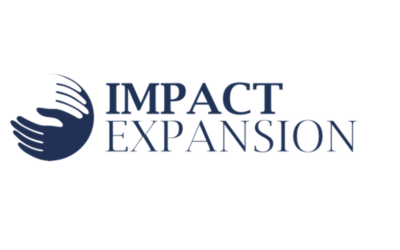This is a copy from the original article of CNBC.
The coronavirus crisis has led to the largest experiment in remote work anyone has ever seen, with many companies switching to telecommuting almost overnight. Our company has been part of the experiment—and it’s taught us some surprising lessons on the power of neurodiversity in a crisis like this.
At Auticon we support our client’s technology needs. Our firm, founded in 2011, is a global IT consulting and social enterprise firm, where 200 of our 300 global employees have autism. We’ve always seen our diversity as a strength that enhances our problem-solving ability. People with autism often excel at business intelligence, quality-assurance test automation and complex software development projects. They have unique cognitive strengths: attention to detail, a systematic way of working, logical analysis, pattern recognition, error detection and sustainable concentration for routine activities.
Hiring people with autism has helped us stay ahead of the tech talent gap. In a survey of more than 3,000 technology leaders, IT outsourcer Harvey Nash and auditing firm KPMG found that 67% reported that a skills shortage was preventing their organization from keeping pace with the pace of change. People on the autism spectrum often are overlooked as a source of talent, with some studies showing that up to 90% are either unemployed or underemployed.
Prior to the coronavirus crisis, most people on our team did their work from our offices. That seemed to be the best way to make sure everyone performed at their best. Workers with autism like consistency in their office environment and routines. A change like painting the walls a different color can cause disruption. When our team works from our offices, we can control these variables.
In conjunction with this, we have on-site support in our regional offices. We employ job coaches in Los Angeles, Columbus and Salt Lake City. The coach often works closely with our team members to customize their work arrangements, make sure we’ve set them up for success and smooth out any bumps. They also serve as a liaison to our clients.
We had to change all of this when the coronavirus struck. On March 17 we transitioned the team to telecommuting after giving everyone three days’ warning. Fortunately, everyone already had laptops and shared mobile devices, so we didn’t have to worry about the technology part of the equation. Our main concern was whether we could maintain productivity.
There were some bumps the first few days. Some team members had to work from kitchen tables and from other busy home locations where anyone would get distracted. To make sure they could create and maintain a workspace that would allow them to be productive, we asked our job coaches to check in with them daily. Sometimes we enlisted the help of family members, too.
But overall, things have gone better than we expected. Many managers at traditional organizations may worry that team members who telecommute will slack off, do the laundry or go on a bike ride when they are supposed to be doing their work — and then fib about how they were spending their time. We never had to worry about this.
People on the autism spectrum commonly are very direct and honest. If you ask them if they are being productive working from home, they’ll tell you the truth. (If they were watching Netflix, they’ll tell you that, too.)
The tech tools we used for remote communication, such as Slack, Jira and Microsoft Teams, also worked very well for us. People with autism often prefer to interface via a precise text or email; verbal or face-to-face conversations, which involve body language and emotional expression, can be more subjective and challenging. Some of our team members who aren’t comfortable making eye contact in person found that they were able to do so on Zoom calls, giving them a new way to connect. In a couple of days, we’ll be getting our team together on Zoom for a celebration of Autism Awareness and Acceptance Month.
We have seen additional business opportunity during the coronavirus crisis. Going virtual has meant our global operation is working together more closely, leveraging a much deeper resource pool with specific technical capabilities in near real time. We are working across multiple time zones to assist clients with rapid deployment in a very cost-effective way. This global virtualization may have taken us months or years to realize prior to the crisis.
Having a team capable of working from home is very powerful. Companies that decide, after the coronavirus crisis ends, to rely more on telecommuting in the future need to have a workforce that’s capable of working remotely. Hiring more people with autism could be the answer. Not only does it bring more diverse ways of thinking to a team but it’s also an ideal way to make sure that you’re staffed up with people who naturally excel at remote work.
— By David Aspinall, CEO of Auticon US and a member of the Young Presidents’ Organization
Photo taken from the original article on CNBC website.




